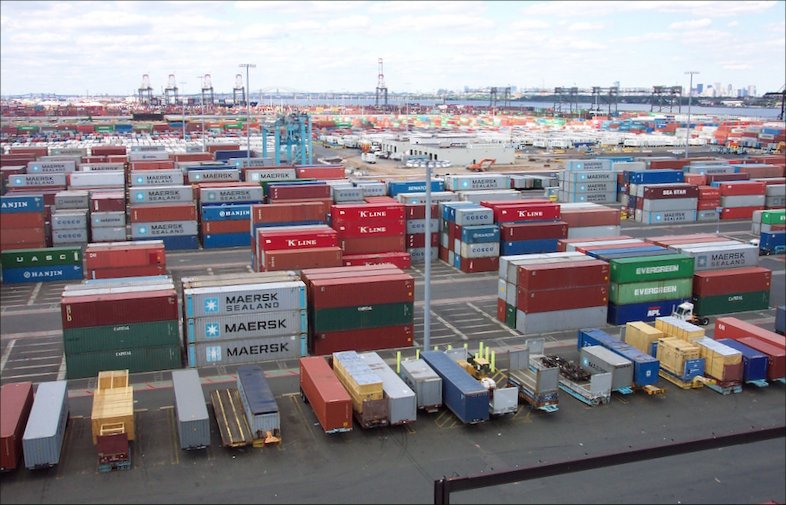Publisher's note: This post appears here courtesy of the Carolina Journal, and written by Julie Havlak.

Tariffs will make reconstruction more expensive and possibly slow efforts to rebuild after Hurricane Florence, builders and economists say.
As the Trump administration remains locked in escalating trade disputes with China, North Carolina faces higher costs from existing tariffs on steel and Canadian lumber.
Before the hurricane hit the East Coast, builders were already estimating the tariffs added $9,000 to the price of the average home, according to the National Association of Home Builders.
"You're going to see that cost be significant in rebuilding residential structures by the beach," Wake Forest University adjunct professor Anthony Penry said.
"It's simply going to be a bit more expensive than it would have been to rebuild the structures without the tariffs."
Hurricane Florence caused some $38 billion to $50 billion in damage and disruption, says an estimate by Moody's Analytics. The estimate ranks Hurricane Florence among the top-10 costliest hurricanes.
"Natural disasters don't have to be economic disasters," said Ryan Sweet, Moody Analytics' head of Monetary Policy Research. "Going forward, what is going be critical is the policy response. The area will need a lot of money from the federal government to flow into the area to help business owners, homeowners, and residents rebuild."
Under the tariffs, federal money won't stretch as far, says Richard Ebeling, professor of Ethics and Free Enterprise Leadership at The Citadel.
"It will make it harder for those who have to somehow adapt to this and cover their expenses that insurances might not cover," Ebeling said.
"It will be more difficult, and it will be pinching in one degree or another their standard of living."
Making matters worse, builders have faced a national labor shortage of construction workers since the economy recovered from the recession. In North Carolina, where the economy is robust and labor markets are tight, the latest hurricane will exacerbate the shortage, Mike Carpenter, executive vice president of the N.C. Home Builders Association, says.
"It's sort of a double whammy. Not only are the material prices higher, but there are also the labor shortages," Carpenter said.
"For a lot of these tradespeople, in addition to damages at their offices, they are also going to be transportation problems and all of these things that will continue to add up and increase prices."
Both economists and builders predict fewer residents will be able to rebuild.
"The tariffs will exacerbate the normal - if there is such a thing - reaction to a disaster to like this," Carpenter said.
"It will be a substantial impact, particularly for entry-level and for first-time homebuyers, because it is often difficult for them to qualify. Price increases price people out."
Those higher prices could also lower the quality of raw materials used in reconstruction.
"As a result, some homes and other buildings might be reconstructed with less than the best quality of materials," Ebeling said.
"I'm not saying that anyone is going to cheat on code, but there are differences in what you think you can afford in rebuilding based on what everything costs."
As builders and residents watch the trade dispute, the added uncertainty could delay efforts to repair devastation left by Florence, Ebeling said.
"Whether this is going to be a prolonged trade war with China, that's anybody's guess," Ebeling said.
"Some people and some businesses may delay the rebuilding with the hope of being able to do it at a lower cost. Some areas might be prolonged in their devastation because renewal hasn't started as soon as it might have if this whole tariff business wasn't going on."
President Trump imposed new tariffs worth $200 billion on China on Sept. 24, after blaming the measures on that country's unfair trade practices.
The tariffs cover a sweeping list of goods, and they have retailers worried. For retailers with merchandise damaged by the hurricane, replacing their inventory could cost more, said Andy Ellen, N.C. Retail Merchants Association president.
"If those items are subject to the latest round of tariffs, your inventory costs just went up compared to somebody you are competing with online," Ellen said.
"They will be at a competitive disadvantage."
The Buy American Act already requires the government to prefer domestic materials in infrastructure projects. The tariffs extend that protectionism to the all residents looking to rebuild, says Roy Cordato, John Locke Foundation senior economist and resident scholar.
"To the extent that it makes it more expensive, it makes it more difficult," Cordato said.
"The domestic steel industry and the lumber industry are getting monopoly profits, and that's on the backs of North Carolina citizens who are having to recover and rebuild from the storm."
But despite the added cost from the tariffs, Sweet expects North Carolina to rebound from the devastation. Builders in Wilmington remain undaunted by both the hurricane and the tariffs, said Cameron Moore, Wilmington-Cape Fear Home Builders Association executive officer.
"From a builder's standpoint, post-recovery to the hurricane, this is still a high-demand area, and we are still on the map," Moore said.
"A hurricane is a hurricane. We've dealt with these many years living in a coastal environment, and we understand what they are and what they do. We are starting to get back to normal as we speak."
Julie Havlak, a 2018 National Journalism Center intern at Carolina Journal, is a senior at Hillsdale College.

